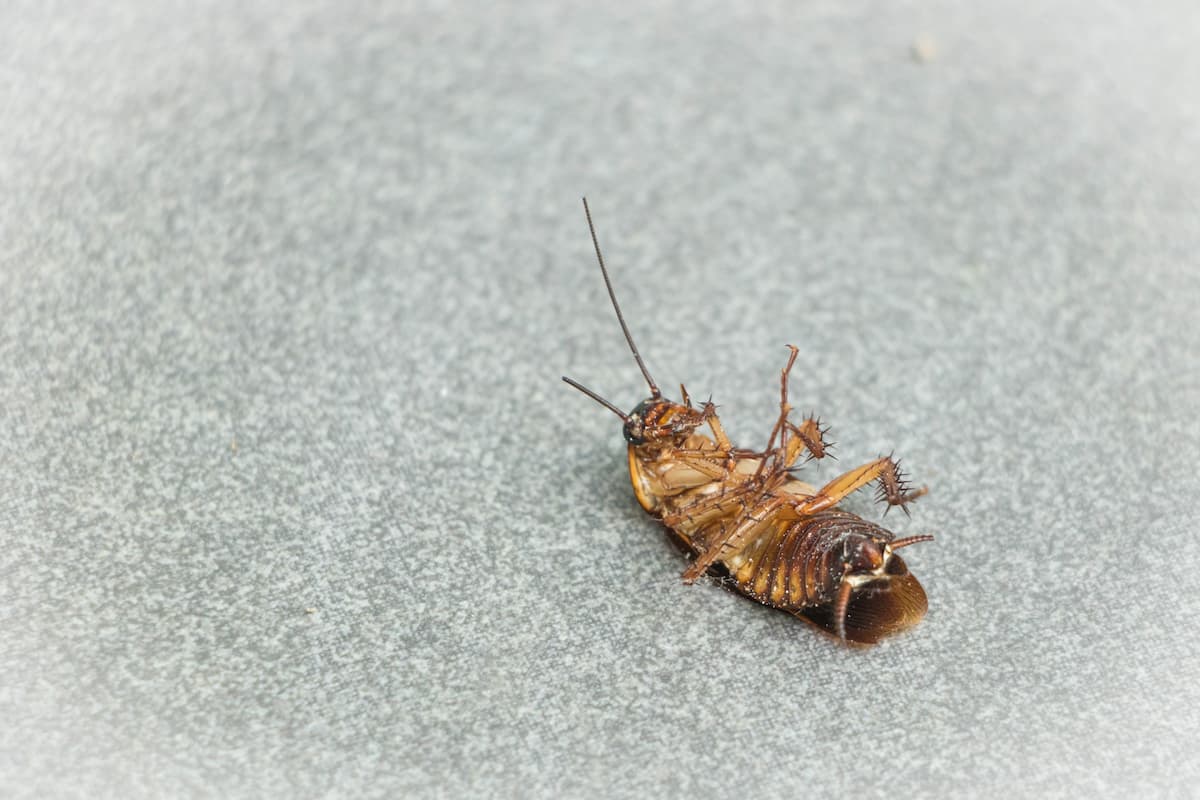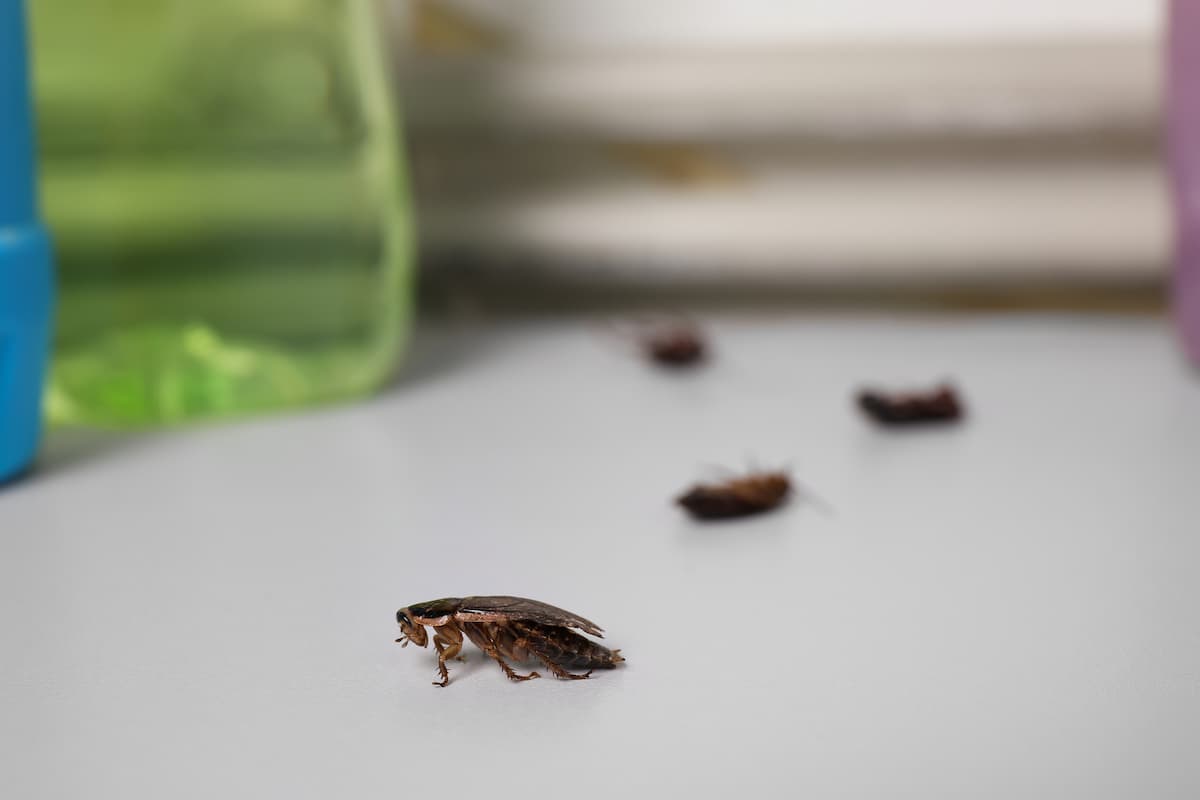Should Cockroaches Be Killed?
Cockroaches strike terror in many people, and even if some aren’t afraid of them, they still find them repulsive.
So despite their reputation, the ethical question remains: should cockroaches be killed?
Cockroaches have the potential to spread disease and are a sign of a more significant problem when found inside homes. If the cockroach is inside, you should probably kill it. However, there is no reason to kill roaches outside. Roaches are essential to ecosystems when they aren’t infesting your house.
Is Killing Cockroaches Ethical?

There is some debate about whether cockroaches can feel pain or not.
Some say their nervous system is too simple to create a true feeling of pain, at least in how humans experience it. So roaches may know they are injured or react to damage but likely can’t suffer.
Others will argue that killing roaches is the same as killing any other animal and is cruel and potentially futile. More cockroaches will simply come in to occupy the space left by the one you killed.
Ultimately, both sides have some grain of truth to their argument. However, roaches pose potential health risks to those inside your home and must be eliminated.
On the other hand, it’s best to handle an infestation as quickly and mercifully as possible.
Whether or not killing cockroaches is ethical comes down to an individual’s morals, though it’s important to remember they will not leave home voluntarily.
Should You Kill Cockroaches in Your Home?
Cockroaches pose a health risk to humans when they share the same space.
Roaches give off particles that can cause or exacerbate asthmatic symptoms. They can also cause severe allergic reactions in some people that can be life-threatening.
Their reputation as carriers of disease is also factual. Cockroaches carry bacteria that cause salmonella and intestinal diseases like dysentery, diarrhea, cholera, and typhoid fever.
While roaches don’t bite (in almost all cases), their spiny legs can quickly scratch people. In addition, since they harbor so many bacteria, these cuts can easily become infected.
All of these hazards are reason enough to eliminate cockroaches from your home.
Do Cockroaches Go Away on Their Own?
In theory, you could eliminate all food and water sources for cockroaches and get them to leave your home. But, unfortunately, this is going to be nearly impossible to do.
You would need to remove any food source for cockroaches, down to the crumbs that get left on counters after cooking.
You would then also need to keep them from being able to find any source of water, including leftover droplets in the sink or condensation on windows.
Even if this was successful, cockroaches could go for up to a month without eating. This can last even longer if they begin to feed on each other.
It’s improbable that cockroaches will leave on their own. No matter how uninviting you make your home.
The only way to deal with an infestation is to eliminate the population of cockroaches living inside your home.
Best Ways to Kill Cockroaches
A professional exterminator is the most sure-fire way to rid yourself of an infestation. They will be able to gauge the size of the problem, eliminate the roaches, and help you keep roaches from coming back into your home.
You can also opt for some DIY elimination and control methods. For example, poison baits are some of the most effective ways to kill cockroaches. You can make homemade baits with boric acid, borax, or baking soda.
Mix the poison with sugar and a bit of water to create dough balls and leave them in high-traffic areas for the roaches to find.
Once ingested, the poison kills the cockroaches by quickly dehydrating them or expanding inside their guts.
You can also purchase chemical gels that act as baits and spread throughout the cockroaches in your home.
Cockroach spray is another good way to eliminate roaches around the house.
Whether sprayed directly or breathing in the neurotoxic agents, roaches will eventually die. The spray causes them to spasm and flip on their backs where they can’t roll over and eventually starve.
It can also cause paralysis and kill cockroaches outright in the case of harsher sprays.
Glue traps are a safer alternative for trapping roaches that don’t involve any heavy chemicals.
They’re best combined with a bait (poisoned or not), and when a cockroach steps on the trap, they become stuck. Then they either starve or can be disposed of by you.
Essential oils are another natural option for repelling cockroaches, though they likely won’t kill them.
Lavender and rosemary are the most popular. You can spray a diluted mixture of the oils around your home to repel cockroaches and freshen up the area.
No matter which method you try, you should expect it to take a few weeks to see any results.
Cockroaches are incredibly durable and hard to kill, with even the best poisons taking time to do their work.
In most cases, you should avoid bug bombing your home. However, fogging like this should be a last-resort option for extreme infestations.
The chemicals released by a bug bomb make the home uninhabitable to people for days and can linger on surfaces for quite some time.
Inhaling, ingesting, or even coming into contact with these harsh chemicals is highly dangerous for humans.
Call a professional exterminator if you aren’t finding success with anything you’re trying.
Does Killing a Cockroach Attract More Roaches?

Killing one cockroach can attract more roaches, but not how most people think.
When you kill a cockroach, especially by smashing it, the roach releases a strong scent and oils that can linger on surfaces for hours. This is the musky smell that accompanies a roach infestation.
Other roaches can pick up the scent from quite a long way off. They aren’t shy about cannibalizing other cockroaches and will usually come to that area in search of an easy meal.
Usually, killing a cockroach isn’t going to attract other roaches to come into your home.
However, it can cause other roaches to come out of their hiding spots and make it seems like more showed up as some sort of revenge.
Remember that cockroaches breed incredibly quickly and are prolific at hiding. So if you’re seeing one cockroach, you should assume there are probably dozens more hiding.
How do You Know if Roaches are Gone?
In general, you’ll use the same signs to tell if you have a cockroach infestation to work out if the problem has been solved.
With an infestation usually comes a musky, moldy kind of smell. The cockroaches give off this smell which is strongest in their nests.
When you stop smelling this odor, the roach infestation has likely gone away.
You’ll also no longer see roaches crawling around. No more scurrying roaches when you flip on a light, or no more roaches running across countertops indicates they are no longer there.
Check hotspots for droppings and egg cases. These should be immediately cleaned up any time you find them, as more roaches can hatch, and their droppings carry bacteria.
If you’re no longer seeing these in nesting areas or around the home, it’s another indicator the infestation has been eliminated.
Remember that for every cockroach you see, there are likely dozens more in hiding. So if you aren’t seeing any roaches or what they leave behind, it’s a good sign they are no longer there.
Read More > How Do You Know if Cockroaches are Gone?
Conclusion
If you find cockroaches inside your home, you should begin working to kill all of them that are still hiding. Cockroaches can pose serious health risks to humans and should now be allowed to stay where people live.
It’s nearly impossible to get cockroaches to leave on their own, so the best option is to eliminate the population of cockroaches that have taken up residency in your house and then make it as hard as possible for more to come in.
